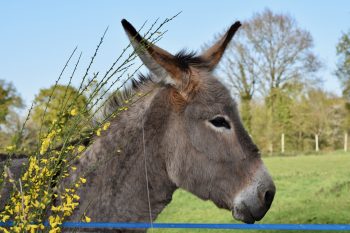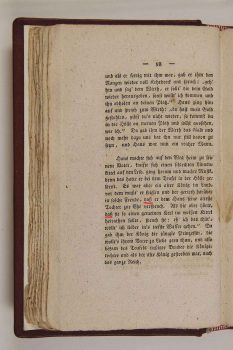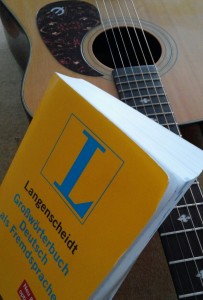Search Results
The German Word Eselsbrücke (Mnemonic) Posted by Constanze on May 3, 2019

Guten Tag! Today we are going to look at the German word die Eselsbrücke, and what it means. Not only is it an interesting word, but an Eselsbrücke is something that might even help you with your language learning! Die Eselsbrücke literally translates to ‘the donkey bridge’. Its actual translation in English, however, is mnemonic…
The difference between das, dass and daß Posted by Sten on Jul 12, 2018

You may have come across the word das. It is the article for neuter nouns, and so it shows up quite a lot. But then there is also dass. And daß? And they all sound the same! What are all these words? Let’s disentangle this Wortsalat (word salad) today! Der Artikel (the article) Das is the most common and straightforward one. It…
What does Taylor Swift sound like in German? – Übersetzgesungen Episode 2 Posted by mickeymickey on Mar 11, 2014
Hey guys! Übersetzgesungen is back with another Germanized version of a song originally in English. This time I decided to try my hand at translating Taylor Swift, who, as it turns out, is much wordier than Simon & Garfunkel. I learned a lot, you know, in trying to capture, like, the vibe of the song. Viel…
Mnemonics – Eselsbrücken Posted by jan on Nov 21, 2012
If you run into problems with a certain word or grammar rule while learning German, maybe one of the following mnemonics might help! But a little German is required to get them anyway… Großschreibung von Nomen: Sei doch schlau und merk dir bloß: Nomen schreibt man immer groß! -ung, -heit, -keit ein Nomen steht bereit. -schaft, -tum…
German adjectives, part 2 – The weak declension Posted by Sandra Rösner on Jun 22, 2012
In my last post I began to talk about forming simple sentences with adjectives in German. You learned that there is no need to decline adjectives in so-called “to be” sentences or, in other words, when you put the adjective after the noun. Unfortunately, things are getting more complicated when you want to put the…
Compound words: Das Fugen-s im Deutschen – The linking “s” in German, part 2 Posted by Sandra Rösner on Feb 24, 2012
The German language is very productive in compounding words. It is virtually possible to great a never-ending word. Of course, Germans do not carry word compounding to extremes, that is, compound words of everyday language do never consist of more than two or three separate words. Anyway, this characteristic of the German language can…
Compound words: Das Fugen-s im Deutschen – The linking “s” in German, part 1 Posted by Sandra Rösner on Feb 22, 2012
You have probably come across German compound words that are linked with an “s”, called linking “s” in English and Fugen-s in German, for example: die Liebesgeschicht – love story der Gerechtigkeitssinn – sense of justice die Schönheitskur – beauty treatment But other words do not contain this linking “s”, for example: die Tee-kanne…



